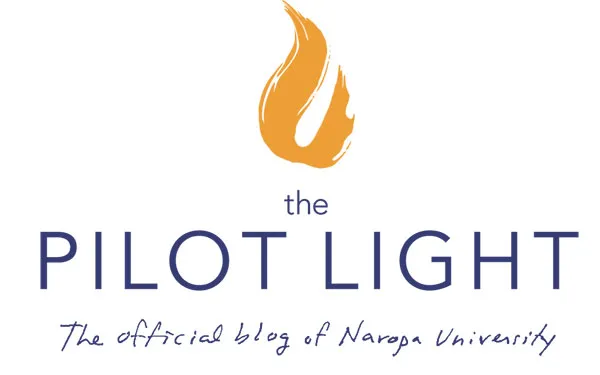
by Leah Miller, BA Religious Studies and Psychology
As we just ended Passover, the holiday commemorating the ancient Hebrews’ escape and freedom from slavery in Egypt, we welcome in Jewish American Heritage Month with loud celebration as we do with any holiday, celebrating that through over 2,000 years of persecution we are still alive and thriving. Jewish American identity is vast and wonderfully complicated; it is a religion, a culture, and a peoplehood. I feel rich in all these areas of Jewish expression. Though I have my many complaints about the United States government, it is my experience as an American Jew that I am freer here than anywhere else in the world to engage in all these aspects of my identity.
My family immigrated to the United States through Elis Island from Eastern Europe in the 1910’s during Eastern European programs with the goal of ethnically cleansing the Jewish people from the region. My family’s home in their shtetl was burnt to the ground by their non-Jewish neighbors, killing my great grandmother’s twin. Since immigrating, my lineage has been wildly safer from systemic oppression. There is both grief for the family members that were killed before our immigration along with the communal culture and Yiddish language that did not survive in my family lineage during American assimilation. There is also celebration of our freedom to exist openly as Jews in this country.
This is an interesting time to be talking about the Jewish-American experience. Though Jewish folks have been widely accepted into most aspects of American life, there still exists extremist thought that encourages segregation of Jewish bodies and subjugation of Jewish voices. Jewish communities across the country are living in fear of being the target of hate crimes. Synagogues have been updating security measures and families have been taking their Shabbat candles down from their windowsills.
There is a sentiment in Jewish communities that when any Jewish person is hurt, everyone bleeds. The sense and depth of feeling of family within Judaism is a central piece of our culture, and a sense of belonging in the Jewish community worldwide is strong. On October 7th, the Jewish-American community watched in terror as 695 Jewish-Israeli civilians were murdered, with fear that we would be targeted next. After this tragedy, Biden has continuously refused to condemn Israel and Netanyahu for war crimes committed by the IDF in Gaza, because he claims that “were there no Israel, there wouldn’t be a Jew in the world who was safe.” Is the safety of Jewish American citizens on American soil not the responsibility of the American government, to ensure the safety of people of any culture, religion, or ethnicity? I believe that this dangerous sentiment is what perpetuates antisemitism in the United States, not criticism of Israel (and I consider criticism of Israel to be warranted and healthy). I am an American Jew. I am not Israeli. So why, then, is a government halfway across the world responsible for my safety? Is it so that my government does not need to be?
May 5th is Holocaust Remembrance Day, or Yom HaShoah in Hebrew. I was taught growing up to “Never Forget” the tragedy of the holocaust, where the 3rd Reich in Germany eradicated 6 million Jews. Yet, when I say never forget, I do not just intend to say that we should never let genocide happen to the Jewish people again; I mean that we should never be complacent with any genocide. In the Torah, we read that when the Hebrews left Egypt, God commanded that, “you shall not oppress a stranger, for you know intimately the feelings of the stranger, having yourselves been strangers in the land of Egypt.“
There is no freedom until we are all free. When we neglect to stand against any and all oppression, we are complicit in the lack of freedom worldwide, including decades of relentless oppression, ethnic cleansing, and displacement of Palestinians, the rising antisemitism at our doorstep, and the displacement and ethnic cleansing of hundreds and thousands of native people from their native lands, including what we have allowed to happen on American soil. There is no liberation without collective liberation.
So, this year, as we say, “never forget,” I ask that my Jewish community remembers the pain of genocide so that we ensure it does not happen again to anyone, and step up to our commitment to Tikkun Olam, repairing the world. To my beloved non-Jewish friends and allies, please remember the grief and confusion of your Jewish friends this month. We are dealing with a mountain of complexities about what it means to be Jewish in the world today. Check in on your Jewish friends and ask what we need to feel safe. We need your support.
Leah Aran Miller (she/they)
BA Religious Studies and Psychology
Events Officer, Student Union of Naropa
Co-Chair, Neshama Hevera- Contemplative Judaism Club
Resources:
Here are some ways that you can be more involved
-
Boulder Jewish Community Center – events and offerings, including Boulder Jewish Fest June 9th
-
Library of Congress Events, Resources, and Lessons on Jewish Heritage Month
-
Virtual Bookshelf of Jewish American Heritage Month
-
Videos and Films from the National Archives of JAHM
-
Learn more about fighting antisemitism: Anti-Defamation League
|
View in SharePoint
|




